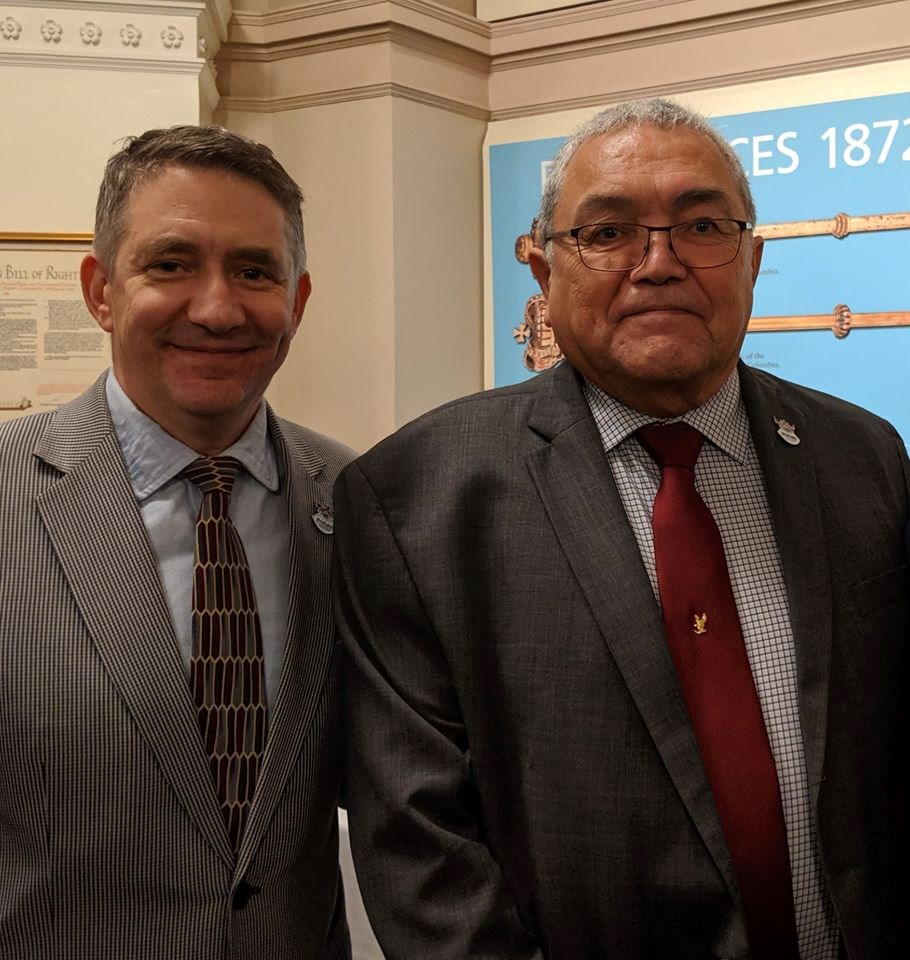Shíshálh Nation Chief Warren Paull was among the many dignitaries at the B.C. legislature last Thursday for the announcement that the province would be the first in Canada to introduce legislation to implement the United Nations Declaration on the Rights of Indigenous Peoples (UNDRIP).
“It’s been 52 years since Frank Calder and the Nisga’a Nation did the first court case on land claims. Since those 52 years and counting, we finally get back to this place where recognition is there,” Paull told Coast Reporter following the announcement, referencing the lawsuit that would eventually lead to the landmark 1973 Supreme Court ruling that acknowledged the existence of Aboriginal title for the first time.
After the event, he told Coast Reporter he was “ more than positive” about the development. “Just about every Act that the legislature has passed is going to have to go into the lens” of UNDRIP legislation, he said. “It’s a great piece. It puts form to the function.”
That includes the year-old Foundation Agreement signed between shíshálh Nation and the province, and which lays out a number of land transfers, land use planning processes and consultation on resources.
The UNDRIP legislation supports their foundation agreement “in its entirety,” said Paull.
“There was a lot of stuff we couldn’t sit down and discuss without getting into it with the actual ministers themselves… Once that legislation is finally passed it will give some of the statutory decision makers some of the flexibility to be able to do the interpretation and how that rolls out,” he said, adding he expects implementation is likely years away.
The legislation was modelled on a federal bill that died in the Senate prior to the election after facing opposition from Conservative senators. It does not include a timeline for achieving its goals.
Among the 46 articles contained in the declaration is the requirement that governments obtain "free and informed consent" from Indigenous groups before approving any project affecting their lands or resources. Indigenous Relations and Reconciliation Minister Scott Fraser said neither the legislation nor the declaration includes wording that grants a veto over resource development projects.
And it does not create any new rights for Indigenous Peoples but rather upholds those established in the Universal Declaration of Human Rights signed by Canada in 1948, according to the province.
Paull said he “took heart” from the fact that the Liberal caucus joined the celebration after the legislation was announced on Oct. 24. “I think that this has resounding support from both sides of the aisle. That to me sends a huge message. And I wish the federal government, especially a guy by the name of Andrew Scheer, would take heart and understand that,” he said.
– With files from Canadian Press



